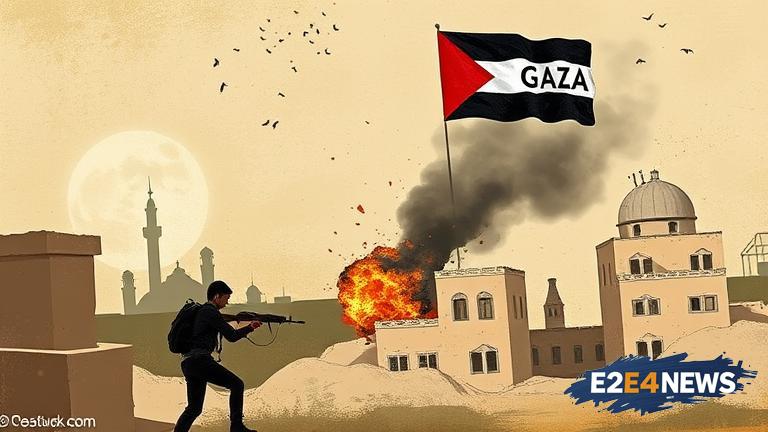The Gaza Strip has been under Israeli blockade for over 15 years, resulting in a severe humanitarian crisis. The Israeli government claims to have eased restrictions, but the reality on the ground tells a different story. Gaza’s economy is in shambles, with unemployment rates soaring and poverty widespread. The lack of access to basic necessities like food, medicine, and clean water has become a norm. The Israeli military’s control over Gaza’s borders and airspace has crippled the territory’s ability to import and export goods. The fishing industry, once a significant contributor to Gaza’s economy, has been severely restricted, with fishermen often being attacked by Israeli naval forces. The agricultural sector has also been devastated, with farmers struggling to access fertile land and water. The Israeli government’s claims of allowing humanitarian aid into Gaza are misleading, as the majority of aid is restricted to limited areas and often delayed. The international community has been criticized for its inaction in addressing the crisis, with many countries failing to hold Israel accountable for its actions. The United States, in particular, has been accused of providing diplomatic cover for Israel’s actions, despite being a major donor to UNRWA, the UN agency responsible for providing aid to Palestinian refugees. The situation in Gaza is often described as ‘unlivable’ by human rights organizations, with the territory’s infrastructure on the brink of collapse. The healthcare system is overwhelmed, with hospitals struggling to provide basic medical care due to a lack of resources and equipment. The psychological toll of living under occupation and blockade cannot be overstated, with many Gazans suffering from anxiety, depression, and PTSD. The Israeli government’s actions are often justified as a response to security concerns, but this narrative has been disputed by many experts, who argue that the blockade is a form of collective punishment. The international community has a responsibility to act, and to hold Israel accountable for its actions. The EU, in particular, has been criticized for its failure to take decisive action, despite being a major donor to the Palestinian Authority. The situation in Gaza is a stark reminder of the need for a just and lasting solution to the Israeli-Palestinian conflict. A two-state solution, which has been the cornerstone of international diplomacy for decades, seems increasingly unlikely, given the Israeli government’s actions on the ground. The Palestinian leadership has been criticized for its failure to provide a unified response to the crisis, with divisions between Hamas and Fatah exacerbating the situation. The international community must recognize the agency and dignity of the Palestinian people, and work towards a solution that prioritizes their rights and needs. The crisis in Gaza is not just a humanitarian issue, but a political one, requiring a comprehensive and sustainable solution. The Israeli government’s actions are a clear violation of international law, and the international community has a responsibility to act. The use of military force against civilians, the restriction of movement and access to basic necessities, and the destruction of infrastructure are all clear breaches of international humanitarian law. The situation in Gaza is a stark reminder of the need for accountability and justice, and the international community must work towards a solution that prioritizes the rights and dignity of the Palestinian people.





